

How to Prepare a PhD Research Plan/Schedule?
PhD research plan is a structured schedule for completing different objectives and milestones during a given timeframe. Scholars are usually unaware of it. Let us find out how to prepare it.
Between March 2021 to 2022, I read almost 15 different research proposals from students (for their projects) and only a single one, I found, with a comprehensive research plan for 3 years. Which is still not, kind of practical, probably copied from other students.
Such entities are not known to over 90% of students, if some know that because their university asked for but unfortunately, this basic procedure lacks penetration among students. I don’t know the exact reason, but students lack a basic understanding of the research process.
Meaning, that they don’t know or perhaps don’t complete their course work needly. PhD research requires many documents, SOPs and write-ups, before even starting it. For example, a rough research plan, research proposal, initial interview, competence screening, grant proposal and so on.
However, the requirement varies among universities and thus knowledge regarding basic procedures often also varies among students. So I’m not blaming students but certainly, it is the fault of the university side, as well.
When you come up with a research proposal with a research schedule or entire plant, certainly it will create a positive image and good reputation. So it is important. But how to prepare it?
Hey, there I’m Dr Tushar, a PhD tutor and coach. In this article, we will understand how we can prepare a structured plan for the PhD research and how to execute it.
So let’s get started.
How to prepare a PhD research plan/schedule?
A PhD research plan or schedule can be prepared using the GANTT chart which includes a month, semester or year-wise planning of the entire PhD research work.
First, enlist goals and objectives.
It’s not about your research objective enlisted in your proposal. I’m talking about the objectives of your PhD. Take a look at some of the objectives.
| Course work | Dry lab work |
| Proposing PhD title | Data collection |
| PhD synopsis | Data analysis- statistical, computational and other |
| Ethical approval | Thesis writing |
| Trial and research work approval | Thesis drafting |
| Review literature | Poster Preparation |
| Questionnaire design | Presentations |
| Fieldwork | Drafting a research paper |
| Conducting the survey | Drafting a thesis |
| Designing the experiment | Thesis completion |
| Wet lab work | Viva |
Note that these are all the objectives that should be completed during the PhD, but not limited to a specific subject. Note you have to show how you can complete or achieve each objective during the entire tenure of your work.
And that is what the plan/schedule is all about. Next, explain the time duration. The time required to complete each goal, roughly. For example, a semester or a year to complete the course work or 4 to 8 months for completion of ethical approval.
Now two things must be known to you, at this point in time.
- First, enlist the time required to complete each objective, as aforementioned.
- Second, what goals would you complete during each semester?
For instance, course work takes a semester to complete, but during the period a scholar can also craft their PhD research title, research proposal, ethical approval and grant proposals.
Now it is also crucial to know that there is no time bound to complete goals, but it should be completed as you explained. Let’s say you can plant it for 3 years, 4 or even 5 years depending on the weightage of your work.
In summary, the answer to the question of how to prepare a research plan is,
- Enlist your goals or objectives.
- Decide the time required to complete each goal.
- Prepare a GANTT chart.
Now you have prepared zero-date planning for your research but how to present it? The answer is a GANTT chart.
GANTT chart for PhD research plan:
GANTT chart is a task manager and graphical presentation of how and how many tasks are completed or should be completed against a given time duration. Take a look at the image below.
How can you prepare one?
Open MS Excel (on Windows) or numbers (on Mac).
Enlist goals or objectives in a column.
Enlist years (duration of PhD) in a row and bifurcate them into individual semesters. You can also prepare a month-wise plan, that’s totally up to you. In my opinion, semester-wise planning is good because research is a lengthy and time-consuming process. So monthly planning would not work.
To make a chart more attractive and readable use colors, as I used. Now mark a ‘cell’ against a column and row showing the objective which you are going to complete in a semester. Take a look.
After the end of this, your GANTT chart would look like this.
You can prepare a month-wise planning, individual semester-wise planning and goal-wise planning etc. I will explain these things in upcoming articles on 5 different types of GANTT charts for PhD.
Custom writing services:
If you find difficulties in preparing a research plan, synopsis, proposal or GANTT chart. We can work on behalf of you. Our costume services are,
- Synopsis writing
- Project writing
- Research proposal writing
- Research planning and GANTT chart preparation.
You can contact us at [email protected] or [email protected] to get more information.
Wrapping up:
Planning and executing a research schedule are two different things. Oftentimes, students just prepare as per the requirements and then do work as per their convenience. Then they are stuck in one place and just work around the time.
Plan things. Make your own GANTT chart, put it on your work table or stick it on a wall so that you can see it daily. Try to achieve each goal in time. Trust me things will work and you will complete your PhD before anyone else.

Dr. Tushar Chauhan is a Scientist, Blogger and Scientific-writer. He has completed PhD in Genetics. Dr. Chauhan is a PhD coach and tutor.
Share this:

- Share on Facebook
- Share on Twitter
- Share on Pinterest
- Share on Linkedin
- Share via Email
About The Author

Dr Tushar Chauhan
Related posts.

Why is it called a Doctor of Philosophy?

Preparing for a PhD Viva
Leave a comment cancel reply.
Your email address will not be published. Required fields are marked *
Save my name, email, and website in this browser for the next time I comment.
Notify me of follow-up comments by email.
Notify me of new posts by email.
- The PhD Journey - Stages of a Doctoral Degree
The PhD Journey
Written by Mark Bennett
A PhD typically involves between three and four years of full-time study, culminating in a thesis which makes an original contribution to your field.
The process of getting a PhD is made up of quite a few components and milestones, from the literature review and writing up your dissertation right through to the viva examination at the end.
This section is a guide on how to do a PhD, providing in-depth advice and information on some of the main challenges and opportunities you’ll meet along the way!.
Get funding updates straight to your inbox
Sign up to our weekly newsletter for the latest funding advice and guidance from our team of experts.
7 stages of the PhD journey
A PhD has a few landmark milestones along the way. The three to four year you'll spend doing a PhD can be divided into these seven stages.
- Preparing a research proposal
- Carrying out a literature review
- Conducting research and collecting results
- Completing the MPhil to PhD upgrade
- Participating in PhD teaching, conferences and publications
- Writing your thesis
- Defending your PhD results at a viva voce
We've expanded on what you can expect from each stage below.
1. Preparing a research proposal
Strictly speaking, your research proposal isn’t part of your PhD. Instead it’s normally part of the PhD application process.
The research proposal sets out the aims and objectives for your PhD: the original topic you plan to study and / or the questions you’ll set out to answer.
It also explains why your work is worthwhile and why it fits with the expertise and objectives of your university.
Finally, a PhD proposal explains how you plan to go about completing your doctorate. This involves identifying the existing scholarship your work will be in dialogue with and the methods you plan to use in your research.
All of this means that, even though the proposal precedes the PhD itself, it plays a vital role in shaping your project and signposting the work you’ll be doing over the next three or more years.
2. Carrying out a literature review
The literature review is normally the first thing you’ll tackle after beginning your PhD and having an initial meeting with your supervisor.
It’s a thorough survey of work in your field (the current scholarly ‘literature’) that relates to your project or to related topics.
Your supervisor will offer some advice and direction, after which you’ll identify, examine and evaluate existing data and scholarship.
In most cases the literature review will actually form part of your final PhD dissertation – usually setting up the context for the project, before you begin to explain and demonstrate your own thesis.
Sometimes a literature review can also be evaluated as part of your MPhil upgrade .
Research vs scholarship
Research and scholarship are both important parts of a PhD. But they aren't the same thing - and it's helpful to know the difference. Research is the original work you produce with your thesis. Scholarship is the expert understanding of your subject area that enables you to conduct valuable research.
3. Conducting research and collecting results
Once you’ve carried out your literature review, you’ll move from scholarship to research .
This doesn’t mean you’ll never read another academic article or consult someone else’s data again. Far from it. You’ll stay up to date with any new developments in your field and incorporate these into your literature review as necessary.
But, from here on in, your primary focus in your PhD process is going to be investigating your own research question. This means carrying out organised research and producing results upon which to base your conclusions.
Types of PhD research
The research process and the type of results you collect will depend upon your subject area:
- In Science, Technology, Engineering and Mathematics (STEM) subjects you’ll focus on designing experiments, before recording and analysing their outcomes. This often means assembling and managing complex numerical datasets – sometimes in collaboration with the rest of your laboratory or workshop.
- In Social Science subjects you’ll be more focussed on designing surveys or conducting case studies. These will produce quantitative or qualitative data, depending on the nature of your work.
- In Arts and Humanities subjects you’ll often have less raw data, but that doesn’t mean you won’t be working with ‘hard’ factual information. You’ll analyse texts, sources and other materials according to an accepted methodology and reflect upon the significance of your findings.
Whatever subject you’re in, this research work will account for the greater part of your PhD results. You’ll have regular meetings with your supervisor, but the day-to-day management of your project and its progress will be your own responsibility.
In some fields it’s common to begin writing up your findings as you collect them, developing your thesis and completing the accompanying dissertation chapter-by-chapter. In other cases you’ll wait until you have a full dataset before reviewing and recording your conclusions.
4. Completing an MPhil to PhD upgrade
At UK universities it’s common to register new PhD students for an MPhil before ‘ upgrading ’ them to ‘full’ doctoral candidates. This usually takes place after one year of full-time study (or its part-time equivalent).
Forcing you to register for a ‘lesser’ degree may seem strange, but it’s actually an important part of the training and development a PhD offers:
- As an MPhil student you’re able to comprehend your field and produce new research.
- As a PhD student you’re able to go that crucial step further and produce the significant original contribution to knowledge that defines a doctorate.
The MPhil upgrade is when you take the step from the former to the latter.
The MPhil upgrade exam
Upgrading from MPhil to PhD registration usually involves a form of oral exam – similar to the viva voce that concludes a PhD. But, unlike a full viva, the MPhil upgrade is less formal and only covers part of your thesis.
In most cases you’ll submit a small amount of the material you’ve produced so far. This could be a draft of your first chapter (or part of it) and / or your literature review. You could also be asked to reflect on your progress in general.
You’ll then sit down with your supervisor and someone else from your department (familiar with your field, but unrelated to your project). They’ll offer feedback on the quality of your work and ask questions about your findings.
The aim of the process won’t be to examine your drafts so much as to confirm that your project has the potential to justify a PhD – and that you’re on track to complete it on time.
‘Failing’ a PhD upgrade is actually quite rare. Your university may ask you to repeat the procedure if they are concerned that you haven’t made sufficient progress or established a viable plan for the rest of your project.
What is an MPhil?
The MPhil (Master of Philosophy) is also a research degree, but its scope is more limited than a PhD (Doctor of Philosophy). And no, just like a PhD, an MPhil isn’t necessarily a Philosophy qualification. Our guide covers all you need to know about the difference between a MPhil and PhD .
5. PhD teaching, conferences and publications
During the PhD process, you’ll have lots of opportunities to take part in extra-curricular activities, such as teaching, academic conferences and publications.
Although it isn’t usually compulsory to participate in these, they can be an incredibly rewarding experience and will look great on your CV.
Teaching during a PhD normally involves hosting undergraduate seminars or supervising students in the lab, as well as marking work and providing feedback.
Academic conferences are an excellent way to network with like-minded colleagues and find out the latest developments in your field. You might even be able to present your own work to your peers at one of these events.
Publishing during a PhD will help you increase your academic profile, as well as give you experience of the peer review process. It’s not normally a requisite of your PhD, but publications will certainly help if you plan on applying for postdoc positions.
6. Writing your thesis
As the culmination of three or more years of hard work, the thesis (or dissertation) is the most important part of the procedure to get your PhD, presenting you with the opportunity to make an original scholarly contribution to your discipline.
Our guide to writing your thesis covers everything you need to know about this lengthy research project, from structure and word count to writing up and submission.
We’ve also written a guide to the PhD dissertation abstract , which is an important part of any thesis.
7. Defending your PhD results at a viva voce
Unlike other degrees, a PhD isn’t normally marked as a piece of written work. Instead your dissertation will be submitted for an oral examination known as a viva voce (Latin for ‘living voice’).
This is a formal procedure, during which you ‘defend’ your thesis in front of appointed examiners, each of whom will have read your dissertation thoroughly in advance.
Examiners at a viva voce
A PhD is normally examined by two academic experts:
- One will be an internal examiner, usually appointed from elsewhere in your faculty and department. They won’t be directly associated with your project, but will have sufficient expertise to assess your findings.
- The other will be an external examiner. They will be a recognised expert in the area you are researching, with a record of relevant research and publication. Most universities in the UK allow you to invite an external examiner of your choice, provided there is no existing conflict of interest.
Your supervisor will help you prepare for the viva and will offer advice on choosing an external examiner. However, they will not normally be present during the examination.
The PhD timeline
| Meet with your and discuss your proposed project. Here you will clarify any changes that are needed and agree a schedule of meetings and a plan of work for the following months. | |
| Clarify the direction of your research, methods and the necessity of any research trips. You will also discuss your training and development needs and begin working towards a . | |
| Hand in of an advanced , thesis plan and timetable for completion. This will then be discussed in the with two internal examiners. | |
| Biannual review with your supervisor(s) to discuss your progress to date and feasibility of completing on time. | |
| You will have made considerable progress on your research by the end of the second year. You may have begun drafting your and engaging in professional activities such as , , and skills training. All of your progress will be discussed in another annual review. | |
| Most of the third year will be spent writing up and redrafting your . You may also engage in professional activities such as , and . | |
| Application for examination and nominate your examiners. | |
| and assisting work such as a skills development log. | |
| Usually the will take place within 10 weeks of the examiners receiving your thesis. | |
| Most PhD students pass with corrections and are given a period to edit the thesis. The length of time given will depend on whether you pass with major or minor corrections. | |
| Receipt of award and graduation! |
Ready to take the next step?
There's lots more information about how to get a PhD in our advice section . Or, if you're ready to start looking at different projects, why not check out one of the thousands of current PhD opportunities in our database?

Not sure how PhD study will differ from a Masters? In this guide, we take a look at how the two qualifications compare, including applications, course structure, assessment and more.

Every student will need to write an abstract for their PhD dissertation. Here's everything you need to know about what an academic abstract is and how to write one.

What can you expect from a PhD? What's life actually like as a postgraduate student? Read our guides to the doctoral research experience.

The viva voce is the final oral exam at the end of a PhD degree. Our guide explains the usual viva format, covers common questions and explains how to prepare.
FindAPhD. Copyright 2005-2024 All rights reserved.
Unknown ( change )
Have you got time to answer some quick questions about PhD study?
Select your nearest city
You haven’t completed your profile yet. To get the most out of FindAPhD, finish your profile and receive these benefits:
- Monthly chance to win one of ten £10 Amazon vouchers ; winners will be notified every month.*
- The latest PhD projects delivered straight to your inbox
- Access to our £6,000 scholarship competition
- Weekly newsletter with funding opportunities, research proposal tips and much more
- Early access to our physical and virtual postgraduate study fairs
Or begin browsing FindAPhD.com
or begin browsing FindAPhD.com
*Offer only available for the duration of your active subscription, and subject to change. You MUST claim your prize within 72 hours, if not we will redraw.

Do you want hassle-free information and advice?
Create your FindAPhD account and sign up to our newsletter:
- Find out about funding opportunities and application tips
- Receive weekly advice, student stories and the latest PhD news
- Hear about our upcoming study fairs
- Save your favourite projects, track enquiries and get personalised subject updates

Create your account
Looking to list your PhD opportunities? Log in here .

Ph.D. Program
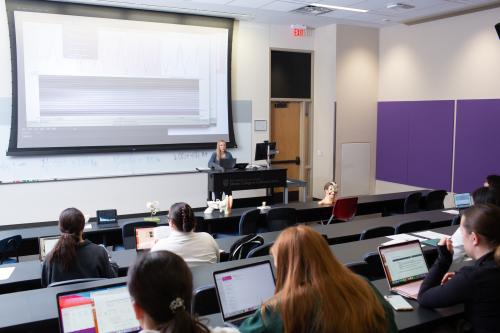
Advancing to Doctoral Candidacy
When you’re ready to advance to doctoral candidacy, review the policies and procedures.
Doctoral students are required to review the degree plans for their program, along with information about specific degree requirements and estimated timelines to reach various benchmarks for the different degree plan specializations.
Oral Examinations
Once your dissertation is nearing completion, it’s time to schedule your defense—your final oral examination.

- Youth Program
- Wharton Online
Wharton Stories
How to maximize and adjust to a phd schedule.
A PhD schedule takes adjustment, but the strategies that work for doctoral studies carry throughout an academic career.
Adjusting to a PhD schedule can be a challenge. Classes will take up a decent amount of your time for the first few years of a program. After completing the required courses, independent research becomes the main focus. Sometimes that can be intimidating. You become your own boss, which is an adjustment from being told what to do and when to do it.
Here are a few tips from current doctoral students and professors at Wharton on how to transition into this new lifestyle:
Brush Up on Your Time Management Skills
Learning how to manage your time more effectively can help you get your schedule under control as well as stay on task and reduce stress. Prof. Wayne Guay , the doctoral coordinator for the Accounting program, said, “Effective time management is crucial to success, progress and sanity. First, students should know they are not alone, as it is something that many — perhaps most — graduate students struggle with from time to time.”
Time management allows you to maximize your day. If you find yourself struggling to effectively manage your time, click here for helpful tips .

Ask for Help
Completing a PhD is not an easy task. There will be times when you’re struggling and may be feel unsure or overwhelmed. Prof. Fernando Ferreira , the doctoral coordinator for the Business Economics and Public Policy and Real Estate programs, suggested that students reach out for help. He said, “It’s always much better to talk people. Share the experience that’s happening and share the problem, usually that’s the best way to overcome that struggle. It’s much easier once you’re able to communicate what exactly is happening.”
Professors are there to guide you when you need, so take advantage of their expertise. If you don’t feel comfortable talking to a professor, talk to a peer. There’s a chance that others have experienced similar issues and can lend some helpful advice. Prof. Ferreira also suggested seeking help sooner rather than later as putting off a problem can cause further issues down the line.
Take a Break
From going to class, completing homework, and conducting research, your days can be jam-packed. Although it is important to focus on your work, it is also important to take time for yourself. Karren Knowlton , a third year Management student, said, “It’s super easy to feel like school is your life, but you won’t be able to bring your best self here if you don’t round yourself out in other ways. I would say maybe two nights a week try to see other people and do something outside of school even if it’s just for an hour.”
Whether grabbing dinner with a friend or joining on a club on campus, there is plenty to do in and around Philadelphia. Karren chooses to spend her free time volunteering with the Science Education Academy in West Philly. Karren said, “ It’s a fun and rewarding way to give something back to the local community that’s easy to work into a PhD student schedule.”
Don’t Compare Yourself to Others
Not comparing yourself to others is easier said than done. It’s important to remember a PhD program is not one size fits all. What works for one person may not necessarily work for you. Prof. Deborah Small , the doctoral coordinator for the Marketing program, said, “Of course it’s impossible to not compare yourself to others, but there’s not one right way to become an academic other than getting that degree.”
Comparing yourself to others can cause you to lose sight of the goal you’re working towards. Focus on what you personally need to do to be successful. Karren said, “Figure out what your priorities are and don’t let looking at other people and how much they seem to be working or not working affect that.”
Having tips to adjust to a PhD schedule is only helpful if you know what to expect. Get an inside look at the schedule of a PhD student .
Posted: August 4, 2017
- Philadelphia
Doctoral Programs
Start your doctoral journey.
Whether you’re just starting your research on PhD programs or you’re ready to apply, we’ll walk you through the steps to take to become a successful PhD candidate.
Deciding to get a PhD
You might be surprised to find out what you can do with a PhD in business.
Is an Academic Career for You ? What Makes a Successful PhD Student
Preparing for the Doctoral Path
The skills, relationships, and knowledge you need to prepare yourself for a career in academics.
How the PhD Program Works How to Become a Successful PhD Applicant
Choosing the right program
What’s the difference between PhD programs? Find out how to choose one that fits your goals.
What to Consider When Choosing a Doctoral Program What Differentiates R1 Universities?
Starting an application
Tips for a successful application process.
Application Requirements Preparing Your PhD Application
Related Content

Learning Innovation at Wharton

Four Ways This Navy Officer Is Expanding His Perspective and Prospects in Wharton’s EMBA Program

Slowing the Rising Tide of Early Internship Recruiting at Wharton

President Liz Magill, Dean Erika James, and Wharton’s Future of Pedagogy

How To Land a Data Science Internship
![From Sponsorship to Loans: Financing Your Wharton MBA [Webinar] phd program schedule](https://dca.wharton.upenn.edu/wp-content/uploads/fin-aid-webinar-video-300x115.jpg)
From Sponsorship to Loans: Financing Your Wharton MBA [Webinar]

Managing the Dark Side of Workplace Friendships

What Wharton Prof. John Paul MacDuffie Wants Students to Know about Human Capital and Competitive Advantage

Pitching for Impact: Results from the 8th Annual MIINT Competition

7 Ways You Can Be a Better Ally at Wharton and Beyond

Dream Big for Big Impact: The Wharton Global Youth Embedded Pre-baccalaureate Program

Wharton Women Learn How Denise Incandela Transformed Fashion at Walmart

Wharton’s First Prism Fellow Prepares to Join the MBA Community

Kellee Kim, WG’19 Takes on the Challenges of Survivor

How to Get the Most out of Sponsorship in Wharton’s EMBA Program
- Future Students
- Current Students
- Faculty/Staff

- Current Students Hub

Doctoral handbook
You are here
- Timetable for the Doctoral Degree
The Doctor of Philosophy degree at the GSE requires four to five years of full-time study. Possession of a relevant master’s degree may shorten this period. Per Stanford policy, students are required to enroll in each quarter of the academic year (Autumn, Winter, and Spring) from their first through final quarter in the program (i.e., until receipt of the degree). Approved leaves of absence are the only exception to this requirement. See the Registration and Student Statuses section of this Handbook and the GSE Courses section. Please note that although this timeline outlines the expected progress for doctoral students, students may always complete milestones earlier than what is outlined below.
- Enroll in Doctoral Core: Pro Seminar EDUC 325A (autumn), EDUC 325B (winter) and EDUC 325C (spring)
- Enroll in Methodology Core: EDUC 400A, EDUC 400B, EDUC 450A, and one additional methods course in consultation with an advisor
- Take any required area/subplan courses
- Take electives relevant to area and specialization
- Enroll in 11 to 18 units in the first three quarters of attendance
- Plan program of study in consultation with advisor(s)
- Assist in research and/or teaching
- First-Year Review in the spring quarter
Second Year
- Enroll in 8 to 10 units each quarter of the regular academic year (autumn, winter, and spring)
- Continue taking any required courses for area/subplan
- Finish methodology core if not completed during first year
- Second-Year Review in the spring quarter
- Finalize program of study in consultation with advisor(s)
- Transfer credit from outside institutions and/or choose a PhD Minor/Master’s Degree (recommended to be done by the end of second year, but can be completed anytime before the student goes TGR)
- Advance to candidacy
- Continuing taking required coursework and electives
- Enroll in 8 to 10 units each quarter of the regular academic year (autumn, winter, and spring quarters)
Fourth Year
- Complete 135 units of earned residency credit (including applicable transfer credit, if any)
- Select reading committee
- Apply for TGR status after completing all course-related degree requirements (including clearing any "incomplete" or "GNR" grades)
- Complete dissertation proposal hearing
- Note that going TGR and completing the dissertation proposal hearing are required in order to be eligible for the fifth-year funding guarantee
Fifth Year and Beyond
- Complete research for and write dissertation
- Schedule University Oral Examination (fourth or fifth year)
- Make revisions to dissertation after the Oral Examination
- Submit dissertation to the University (final quarter of program)
Each of these steps requires action and documentation by the student. At various times, the faculty advisor, Doctoral Programs Officer, Area Committee, or other entities participate in the completion of degree requirements. Students must ensure that each step is completed and that all appropriate parties have taken the necessary actions. See the Degree Progress Self-Tracking Checklist at the end of this Handbook.
- Printer-friendly version
Handbook Contents
- Degree Requirements
- Degree Milestones
- Registration and Student Statuses
- Graduate Financial Support
- GSE Courses
- Curriculum Studies and Teacher Education (CTE)
- Developmental and Psychological Sciences (DAPS)
- Learning Sciences and Technology Design (LSTD)
- Race, Inequality, and Language in Education (RILE)
- Social Sciences, Humanities, and Interdisciplinary Policy Studies in Education (SHIPS)
- Contact Information
- Stanford University Honor Code
- Stanford University Fundamental Standard
- Doctoral Programs Degree Progress Checklist
- GSE Open Access Policies
PhD students, please contact
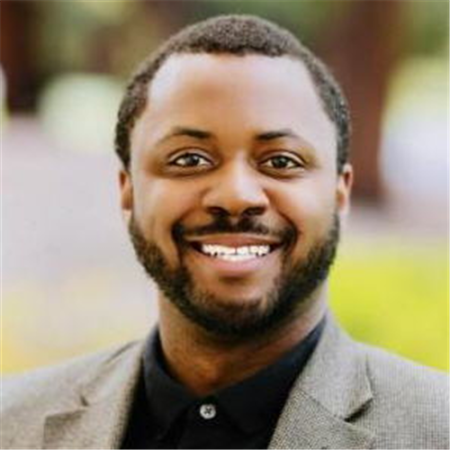
MA POLS and MA/PP students, please contact
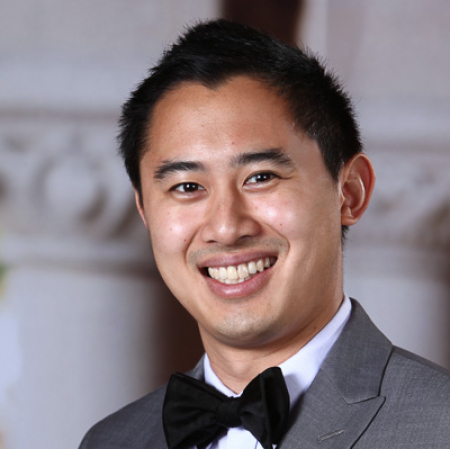
EDS, ICE/IEPA, Individually Designed, LDT, MA/JD, MA/MBA students, please contact
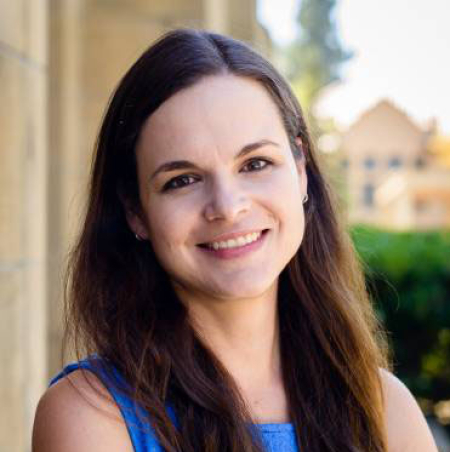
Stanford Graduate School of Education
482 Galvez Mall Stanford, CA 94305-3096 Tel: (650) 723-2109
- Contact Admissions
- GSE Leadership
- Site Feedback
- Web Accessibility
- Career Resources
- Faculty Open Positions
- Explore Courses
- Academic Calendar
- Office of the Registrar
- Cubberley Library
- StanfordWho
- StanfordYou
Improving lives through learning

- Stanford Home
- Maps & Directions
- Search Stanford
- Emergency Info
- Terms of Use
- Non-Discrimination
- Accessibility
© Stanford University , Stanford , California 94305 .

UCL Ear Institute
- Typical timetable for full-time PhD student (3 ...

Typical timetable for full-time PhD student (3 Year)
| By 1 month | Research Log activated Field of Study agreed Assignment of Supervisors Timetable for supervisory meetings and progress reports |
| Before 3 months | Agreement of thesis work plan, research method and timetable Agreement of and attendance at Skills Development Programme and arrangements made for any further required study |
| 6 months | Research Log updated with progress report |
| 12 months | Agreement of programme for second year of study Writing of upgrade report and upgrade viva takes place Transfer of registration from MPhil to PhD (between 9–18 months, but as early as reasonable). |
| 24 months | Submission and assessment of second year progress report on research log Agreement of thesis structure and strict timetable for thesis writing |
| 30 months (not less than 4 months before expected date of submission | Submit entry for examination form Submit nomination of examiners form |
| 36-48 months | Complete Research Log Transfer to Completing Research Student status (if necessary) Submission of thesis |
Students and Studentships
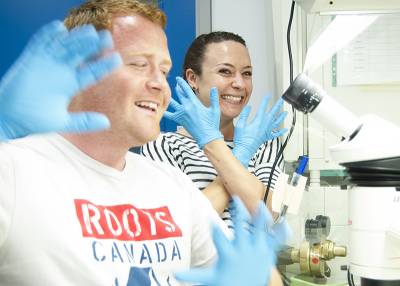
Find out what our current cohort of research students are getting up to, where our past students have ended up and whether we have any Studentships currently advertised on our jobs page:
- Current students
- Alumni testimonials
- Studentships (Jobs page)
- Resources for students/supervisors
- PhD Overview and Timeline
Given here are School-wide graduate degree policies and guidance. Program-specific degree options, requirements, and model programs can be found on the "Graduate Programs" pages under each of the subject areas listed in Academics .
General Ph.D. Requirements
- 10 semester-long graduate courses, including at least 8 disciplinary. At least 5 of the 10 should be graduate-level SEAS "technical" courses (or FAS graduate-level technical courses taught by SEAS faculty), not including seminar/reading/project courses. Undergraduate-level courses cannot be used. For details on course requirements, see the school's overall PhD course requirements and the individual program pages linked therein.
- Program Plan (i.e., the set of courses to be used towards the degree) approval by the Committee on Higher Degrees (CHD).
- Minimum full-time academic residency of two years .
- Serve as a Teaching Fellow (TF) in one semester of the second year.
- Oral Qualifying Examination Preparation in the major field is evaluated in an oral examination by a qualifying committee. The examination has the dual purpose of verifying the adequacy of the student's preparation for undertaking research in a chosen field and of assessing the student's ability to synthesize knowledge already acquired. For details on arranging your Qualifying Exam, see the exam policies and the individual program pages linked therein.
- Committee Meetings : PhD students' research committees meet according to the guidelines in each area's "Committee Meetings" listing. For details see the "G3+ Committee Meetings" section of the Policies of the CHD and the individual program pages linked therein.
- Final Oral Examination (Defense) This public examination devoted to the field of the dissertation is conducted by the student's research committee. It includes, but is not restricted to, a defense of the dissertation itself. For details of arranging your final oral exam see the Ph.D. Timeline page.
- Dissertation Upon successful completion of the qualifying examination, a committee chaired by the research supervisor is constituted to oversee the dissertation research. The dissertation must, in the judgment of the research committee, meet the standards of significant and original research.
Optional additions to the Ph.D. program
Harvard PhD students may choose to pursue these additional aspects:
- a Secondary Field (which is similar to a "minor" subject area). SEAS offers PhD Secondary Field programs in Data Science and in Computational Science and Engineering . GSAS lists secondary fields offered by other programs.
- a Master of Science (S.M.) degree conferred en route to the Ph.D in one of several of SEAS's subject areas. For details see here .
- a Teaching Certificate awarded by the Derek Bok Center for Teaching and Learning .
SEAS PhD students may apply to participate in the Health Sciences and Technology graduate program with Harvard Medical School and MIT. Please check with the HST program for details on eligibility (e.g., only students in their G1 year may apply) and the application process.
PhD Timeline
--> Also see the separate pages with on-boarding information for new PhD students <-- Information and Resources for New Graduate Students Wiki site for incoming PhD students (behind Harvard Key)
First Year (G1)
- Notify your financial aid officers of any external funding. Contact: Erin Bishop in SEAS Finance and Emily Fingerle in GSAS Financial Aid.
- Make note of the course registration deadline. (previously known as "Study Card Day"). See the GSAS Policies Academic Calendar.
- Register for courses before the deadline (previously known as "Study Card Day")
- Mid-January: Deadline for submitting materials to be reviewed at the January CHD meetings .
- Late-January: Course registration deadline (previously known as "Study Card Day").
- G1s: Your Prospective Program Plan due to the Office of Academic Programs on this day.
- Transfer of up to 3 classes of coursework may be allowed. Include the Application for Credit for Work Done Elsewhere with your Prospective Program Plan.
- April 1: Research Advisor Selection Form /Research Assistant appointment form due to Office of Academic Programs.
- Note: The April CHD meeting is the last CHD meeting in all academic year. CHD does not meet over the summer. Remember to plan ahead.
Second year (G2)
Throughout year.
- G2’s are required to serve as a Teaching Fellow in either the Fall or Spring semester.
- Make sure you complete the TF form once you line up a TF position!
- G2’s are required to take their qualifying exam in either the Fall or Spring terms.
- Email quals_defenses@seas to book a room. If you book your own room (e.g., external to SEAS) you must still email quals_defenses@seas well in advance in order for your required documentation to be ready, else your exam cannot take place.
- Upon completion of the exam, students are required to submit the Designation of Research Committee form to OAP.
- If you plan to request a delay of the qualifying exam, complete a Request to Delay Qual Exam form. Note that delays until September (i.e. start of G3 year) are typically approved as a matter of course
- Mid-September: Course Registration Deadline (previously known as "Study Card Day"). See the GSAS Policies Academic Calendar.
- Mid-October : Final Program Plan due to OAP; see the CHD page for dates.
- Late-January : Course Registration Deadline (previously known as "Study Card Day"). See the GSAS Policies Academic Calendar.
- May 1 : Advising Agreement form due to OAP.
- May: Commencement and diploma options for Masters en Route / Continuing Master’s students - You can apply to receive your S.M. degree en route to your PhD after you have completed eight of your core courses (this requirement may depend on area). You will receive your S.M. diploma, and participate in the Commencement if you choose to. However since you will be considered a non-terminal degree recipient, you will not be able to join the ceremony in Sander's Theater.
Third year (G3+) and beyond
- Meet with your Research Committee at least annually, as indicated by your area's expectations.
- Send any changes to your Final Program Plan to the CHD for review. See the CHD page for submission dates. Note that the Committee on Higher Degrees expects students not to petition for a revised Program Plan less than a year prior to the final defense in case additional coursework is required, so it's important to keep your plan up to date with your courses as actually taken.
- Inform OAP of any changes to your research committee .
- PhD candidates can review their eligibility to receive an SM en route .
- Early-September: Course Registration Deadline (previously known as "Study Card Day"). See the GSAS Policies Academic Calendar.
- Late-January: Course Registration Deadline (previously known as "Study Card Day"). See the GSAS Policies Academic Calendar
- May 1 : RA reappointment form due to OAP.
Completing your degree
Degree application.
- Check out FAS degree-completion information here (Registrar) and deadlines here (GSAS calendar)
- Complete the degree application via my.harvard by the Registrar's deadline.
- If you schedule your own room (e.g., external to SEAS) you must still email quals_defenses@seas well in advance in order for your required documentation to be ready, else your defense cannot take place. You must also get agreement from your full committee to hold your defense in a non-SEAS room.
Dissertation Submission and Commencement
- The best way to share your dissertation with others is by linking to the DASH copy. DASH uses persistent URLs and provides you with download statistics, and the DASH copy of your PDF will not include the signed Dissertation Acceptance Certificate (DAC). If you choose to post or share your PDF in some other way, you should remove the DAC page so that readers do not have access to the scanned signatures.
- Get ready for commencement by updating your email and other contact information via my.harvard.edu .
In Academic Programs
- Non-Resident and Part-Time Study
- CHD Meeting Schedule
- PhD Course Requirements
- PhD Program Plans
- Teaching: G2 year
- Qualifying Exam: by end of G2 year
- Research Advisors, Committees, and Meetings
- Dissertation and Final Oral Exam
- SM and ME Course Requirements
- SM and ME Program Plans
- Masters Thesis and Supervisor
- SM degree en route to the PhD
- Graduate Student Forms
- Teaching Fellows
- External Fellowships List
- COVID-19 Graduate Program Changes (archived)
Dates and Deadlines
Main navigation, application open date.
The online application for 2025 entry will open in mid-September 2024.
Application Deadlines
Application deadlines vary by program and range from November to March for full-time programs. Before you apply, check the application deadline for your program on the Explore Graduate Programs page .
The application closes at 11:59 p.m. Pacific Time on your program’s deadline.
Decision Notification
Decision timelines vary by program, and the graduate program to which you applied will communicate the admission decision to you in accordance with the program’s notification timeline.
- Harvard Business School →
- Doctoral Programs →
PhD Programs
- Accounting & Management
- Business Economics
- Health Policy (Management)
- Organizational Behavior
- Technology & Operations Management
Students in our PhD programs are encouraged from day one to think of this experience as their first job in business academia—a training ground for a challenging and rewarding career generating rigorous, relevant research that influences practice.
Our doctoral students work with faculty and access resources throughout HBS and Harvard University. The PhD program curriculum requires coursework at HBS and other Harvard discipline departments, and with HBS and Harvard faculty on advisory committees. Faculty throughout Harvard guide the programs through their participation on advisory committees.
How do I know which program is right for me?
There are many paths, but we are one HBS. Our PhD students draw on diverse personal and professional backgrounds to pursue an ever-expanding range of research topics. Explore more here about each program’s requirements & curriculum, read student profiles for each discipline as well as student research , and placement information.
The PhD in Business Administration grounds students in the disciplinary theories and research methods that form the foundation of an academic career. Jointly administered by HBS and GSAS, the program has five areas of study: Accounting and Management , Management , Marketing , Strategy , and Technology and Operations Management . All areas of study involve roughly two years of coursework culminating in a field exam. The remaining years of the program are spent conducting independent research, working on co-authored publications, and writing the dissertation. Students join these programs from a wide range of backgrounds, from consulting to engineering. Many applicants possess liberal arts degrees, as there is not a requirement to possess a business degree before joining the program
The PhD in Business Economics provides students the opportunity to study in both Harvard’s world-class Economics Department and Harvard Business School. Throughout the program, coursework includes exploration of microeconomic theory, macroeconomic theory, probability and statistics, and econometrics. While some students join the Business Economics program directly from undergraduate or masters programs, others have worked in economic consulting firms or as research assistants at universities or intergovernmental organizations.
The PhD program in Health Policy (Management) is rooted in data-driven research on the managerial, operational, and strategic issues facing a wide range of organizations. Coursework includes the study of microeconomic theory, management, research methods, and statistics. The backgrounds of students in this program are quite varied, with some coming from public health or the healthcare industry, while others arrive at the program with a background in disciplinary research
The PhD program in Organizational Behavior offers two tracks: either a micro or macro approach. In the micro track, students focus on the study of interpersonal relationships within organizations and the effects that groups have on individuals. Students in the macro track use sociological methods to examine organizations, groups, and markets as a whole, including topics such as the influence of individuals on organizational change, or the relationship between social missions and financial objectives. Jointly administered by HBS and GSAS, the program includes core disciplinary training in sociology or psychology, as well as additional coursework in organizational behavior.
Accounting & Management
Business economics , health policy (management) , management , marketing , organizational behavior , strategy , technology & operations management .
- Prospective Students
- Make a gift to the School of Education
- Attend a credential program info session
- Know if my courses meet the prerequisite requirements for the teaching credential
- Find course schedules
- Learn more about the MA part of the Credential/MA program
- Learn about applying to the teaching credential program
- Know if the School offers a part-time, night or summer teaching credential program
- Learn about the cost of the Credential/MA program
- Learn about the Doctorate in Educational Leadership (EdD)
- Learn about the PhD program

- Course Requirements
- PhD Timeline and Milestones
- PhD Advising
- GGE Research Seminars
- Financial Support
- Language, Literacy & Culture
- Learning & Mind Sciences
- Mathematics Education
- School Organization & Educational Policy
- Science & Agricultural Education
- Graduate Group Faculty
PhD in Education
Welcome to the graduate group in education phd program.
Our Ph.D. program critically engages students in contemporary issues that impact education research, policy and practice. Emphasizing collaboration, the program is an interdisciplinary graduate group that draws its faculty from diverse fields of education, humanities, social science, physical and biological sciences, mathematics, and medicine, and engages with key campus centers and programs, such as the M.I.N.D. Institute and the Poverty Center.
Designed to foster scholarly engagement and impact the practice of education, students may select from 5 areas of emphasis:
- Language, Literacy and Culture
- Learning and Mind Sciences
- Science and Agricultural Education
- School Organization and Educational Policy
Graduates of our program gain deep knowledge of educational theory and practice related to strengthening schools and other educational settings. Our close proximity to California’s state capital of Sacramento also affords students a rich set of opportunities and networks for influencing education policy.
To learn more about applying to our program, visit our Admissions & Financial Aid – PhD Program page. You are also welcome to attend one of our virtual Ph.D. Information Sessions listed below. You will need to register for the event to receive the Zoom link to attend.
Wednesday, September 18, 2024 3:00-4:00pm (PST) ( Registration Link )
Thursday, October 17, 2024, 5:00-6:00pm (PST) ( Registration Link )
Monday, November 4, 2024 3:00-4:00pm (PST) ( Registration Link )
PhD Student Antoinette Banks Wins $1 Million Black Ambition Prize
Award is for parent-facing app that uses predictive AI to optimize IEP plans

Kaozong Mouavangsou
MA ’16, PhD ’22


Interested in Learning More about Education

- Future Students
- Current Students
- Faculty and Staff
- Corporate Partners
- Quick Links
- The Claremont Colleges
- Maps and Parking
- Infographic
- Office of the President
- President’s Cabinet
- Board of Trustees
- Corporate Partnerships
- Team Master’s Project
- Staff and Faculty Directory
- Corporate Relations Board
- Event Calendar
- Media Policy
- Media Contact
- Find a Faculty Expert
- Doctor of Pharmacy
- Doctor of Philosophy in Applied Life Sciences
- Occupational Therapy Doctorate
- Master of Business and Science
- Master of Engineering in Biopharmaceutical Processing
- Master of Science in Applied Life Sciences
- Master of Science in Human Genetics and Genetic Counseling
- Master of Science in Human Genetics and Genomic Data Analytics
- Master of Science in Medical Device Engineering
- The Chan Family Master of Science in PA Studies
- Postbaccalaureate Premedical Certificate
- Postbaccalaureate Pre-PA Certificate
- Certificate in Bioscience Management
- Certificate in Applied Genomics
- Master of Biotechnology Management
- Master of Community Health Administration
- Biocon Certificate Program
- Henry E. Riggs School of Applied Life Sciences
- School of Pharmacy and Health Sciences
- Advanced Skill Training in Medical Assistance
- Application Boot Camp
- Bioprocessing Summer Undergraduate Internship Training and Education
- Clinical Genetics and Bioinformatics Summer Program
- High School Summer STEM
- Managing Science in Biotech for Postdocs
- Medical Device Development Bootcamp
- PA Summer Success Program
- Pre-Occupational Therapy Program
- Pre-Pharmacy Enrichment Program
- Summer Speaker Series
- Summer Undergraduate Research Experience
- Undergraduate Summer Science Courses
- Academic Calendar
- Academic Support Services
- Course Catalog
- Huntley Bookstore
- Request Info
- International Students
- Cost of Attendance
- Funding Your Degree
- Veterans’ Education Benefits
- Helpful Tips
- Federal Consumer Information
- Eligibility
- Meet the Admissions Team
- Articulation Agreements
- Ambassador Program
- Areas of Research
- Find an Expert
- Faculty Directory
- Office of Research & Sponsored Projects
- Amgen Bioprocessing Center
- Center for Biomarker Research
- Center for Rare Disease Therapies
- Center for Training in Applied Genomics
- Justice, Equity, Diversity, and Inclusion (JEDI) Committee
- Science Heritage Center
- Institutional Laboratory Support
- Lab Safety Plans
- Lab Safety Training
- OSHA Lab Standard
- Career Placement & Salaries
- Alumni Success Stories
- Spin-Off Companies
- Dean’s List
- Student Success: MBS
- Student Success: MEng
- Student Success: MS
- Student Success: MSGC
- Student Success: MSGDA
- Student Success: PhD
- Student Success: PharmD
- Career Resources for Students
- Career Resources for Employers
- CGU Writing Center
- Academic Tutors
- Academic Success Seminars
- Online Academic Resource Center
- Board Exam Review Sources
- Peer Mentor Program
- Personalized Action Plan
- Student Conduct
- Student Tools and Resources
- KGI Event Calendar
- Club/Org Event Calendar
- Commencement
- Orientation and Academic Prologue
- White Coat Ceremony
- Tuition Rates
- Important Dates
- Payments, Refunds, Late Fees
- Student Accounts FAQ
- Campus Life
- Campus Safety
- Student Handbook
- Health and Wellness
- Helpful Forms
- Student Accessibility Services
- Student Government
- Student Success Fund
- TCCS Student Resources
- Giving Society
- Make a Gift
- Planned Giving
- Ways to Give
- Matching Gifts
- Corporate and Foundation Philanthropy
- Career Services for Alumni
- Alumni Events
- Alumni News
- Alumni and Parents Update Info
- Alumni LinkedIn Group
- Class Notes
- Contact Alumni Support
- International
- Student Accounts

PhD Schedule & Format
- Completion of the PhD portion of the program is anticipated to require an additional three years of full-time study, with the possibility for extension depending on the particular research project.
PhD Program Schedule and Format
- Students complete a master’s degree in the applied sciences at KGI OR similar master’s program with comparable learning objectives.
- PhD program start term can be either fall or spring.
For more information, please consult the PhD student handbook .
Selection of Dissertation Advisor and Committee
At the beginning of the PhD program, each student will select a committee that serves as mentoring team and includes the primary research advisor, an external advisor who is typically from industry or non-profit research organization, and at least one other committee member who can be from KGI or from an external entity. The research advisor(s) will supervise the student’s dissertation work.
View a PDF of the PhD Dissertation formats.
Each semester during their PhD study, students enroll in the 1.5 unit course PDEV 7200 Current Topics in Applied Life Sciences & Ethics/ Responsible Conduct of Research. Their research work and the tracking of all PhD research progress and milestones are tracked through the course RES 7000 which is a 13.5 unit course each semester and 12 units over the summer session. Upon approval of their faculty advisor and the PhD Program Director, students may register (through the Registrar’s office) for additional courses that further their PhD research.
Program Learning Outcomes
After completing the PhD, students should be able to:
- Apply rigorous research methodologies to original, independent experimental, theoretical, and/or computational work in applied bioscience.
- Integrate the fundamentals of computational and informational science, engineering design, and biomolecular technologies to solve problems in applied life science.
- Communicate effectively in an academic as well as in an industry environment composed of students, scientists, engineers, administrators and business professionals.
- Demonstrate core business analysis and management knowledge needed for the bioscience industry and can assume leadership roles in realizing the goals of technical and business projects.
- Develop both a broad understanding of current scientific advances and mastery in an area of interdisciplinary science of relevance to applied bioscience sufficient for conducting original research.
- Understand the translation of basic science and engineering discoveries into products and processes, which benefit society.
- Adhere to ethical principles in research, development and business issues inherent in the bioscience industries.
You are using an outdated browser. Please upgrade your browser to improve your experience and security.

PhD Program Schedule
The PhD program’s focus is to hone each student’s critical thinking, problem solving, field-specific, communication and career planning skills while promoting their development as advocates for science and ethical research.
To accomplish these goals, students must complete a core curriculum, undertake research rotations, complete field-specific electives and undertake thesis research while successfully navigating key evaluation milestones.
Required Courses Year 1
BBS 614 - Scientific Inquiry in Biomedical Research BBS 850 - 3 research rotations Two Electives (2-4 credits each)
Required Courses Year 2
BBS 602 - Preparation for Qualifying Exam One Elective (2-4 credits) BBS 870 - Prequalifying Research BBS 860 - Qualifying examination
Required Courses Year 3
BBS 601 - Professionalism and Research Conduct (PARC) BBS 900 - Thesis Research BBS 865 - TRAC meeting
Required Courses Year 4 and Beyond
BBS 990 - Graduate Research BBS 865 - TRAC meeting
Evaluation Milestones
The student selects and is accepted by a Thesis Research Advisor by April 1st. The student is in good academic standing (GPA ≥ 3.0) in order to advance to year 2 or is approved for conditional advancement to Year 2 by the Academic Advancement Committee.
The student successfully completes a written qualifying proposal and orally defends the proposal no later than June of their 2nd year. Each student is required to demonstrate competence in critical thinking, experimental design and problem solving and substantive area expertise.
Year 3 and Beyond
The student proposes an annual Individual Development Plan in which they:
- present and discuss their immediate research and professional skills development goals to their Thesis Research Advisory Committee (TRAC).
- receive feedback and advice from their research and professional skills IDP goals from their TRAC.
- present and discuss their career planning goals with the staff of the Center for Biomedical Career Development.
Dissertation Defense
The public oral defense of the dissertation allows students to clearly explain their work and its contributions to the field. The dissertation defense allows the Dissertation Examination Committee to determine whether the student has satisfied the learning objectives of the doctoral program.
Creating awesome Gantt charts for your PhD timeline

It’s a common scenario: you have never heard about Gantt charts. Then, when writing a PhD application or planning your PhD timeline for the upcoming years, someone suggests: You should include a Gantt chart! No need to worry. Here is all you need to know about Gantt charts for your PhD timeline.
What are Gantt charts?
Gantt charts belong to the family of bar charts. In a Gantt chart, bars depict different project tasks. The length of each bar is proportionate to the task duration and indicates both start and finish dates.
Why are Gantt charts frequently used for PhD timelines?
A Grantt chart is a great way to provide an overview of project tasks, activities and milestones.
Gantt charts are frequently used to illustrate PhD timelines because doing a PhD essentially means creating, managing and implementing a project with many components over several years.
Furthermore, Gantt chart PhD timelines allow PhD students to track their progress. They can also help PhD students to stay on track with their work.
What information is included in Gantt charts for PhD timelines?
Of course, every PhD project is unique. This uniqueness should be reflected in your Gantt chart. For instance, your Gantt chart PhD timeline will look different if you write a PhD based on articles or if you write a monograph .
How do you create a Gantt chart for your PhD timeline?
Creating a phd timeline gantt chart in microsoft excel.
You can create a table, turn it into a bar chart and manually edit it until it looks like a Gantt chart. If you have some experience with Excel, it is doable. Detailed instructions on the process can be found in this manual from Ablebits.com.
Creating a PhD timeline Gantt chart in Microsoft PowerPoint
First, you need to open a blank PowerPoint slide. Then click on Insert (1.), then Chart (2.). A popup will appear. Select Bar (3.) and finally select the Stacked Bar option (4).
In the example below, I decided to plan PhD tasks for a year. Thus, 1 means January, 2 means February, 3 means March and so forth. The length of tasks is also indicated in months:
Now comes the fun part, namely decorating. You can add a chart title, colour the bars in the colour of your choice, edit the legend and the axis descriptions. Just play with it to explore the options.
Creating a PhD timeline Gantt chart in a Microsoft Word
To start the process in Word, it is smart to first change the orientation of your page to Landscape . In the top menu, click on Layout , then select Orientation , then choose Landscape .
Creating a PhD timeline Gantt chart with an online tool
If you don’t want to go through the hassle of creating your own Gantt chart but are not convinced by any templates, you can make use of online tools and software.
You can use a free provider (or make do with one of the many Gantt chart templates that exist on the internet). One free online tool is the Free Online Gantt Chart Software :
The site requires no signup. You can editing and simply start filling in the Gantt chart, and export it as an Excel, Image or PDF file when you are done!
PhD timeline Gantt chart templates
Best gantt chart template for phd timelines in microsoft excel, best gantt chart template for phd timelines in microsoft powerpoint.
A useful Gantt chart template for PhD timelines in PowerPoint can be downloaded here via OfficeTimeline.com This Gantt chart is particularly great to provide a rough overview of plans over a longer period. For instance, with a few edits, you can illustrate a nice 3-year PhD timeline.
Best Gantt chart template for PhD timelines in Microsoft Word
Useful Gantt chart templates for Microsoft Word can be downloaded here from TemplateLAB. I like these templates as they can be easily adjusted to the needs of a PhD timeline. For instance, a weekly Gantt chart template can be useful to establish a detailed plan with weekly objectives to keep your PhD progress on track.
PhD timeline Gantt chart examples
Gantt chart phd timeline example in microsoft excel, gantt chart phd timeline example in microsoft powerpoint, gantt chart phd timeline example in microsoft word.
Using a weekly Gantt chart template from TemplateLab mentioned above, an example PhD timeline with weekly tasks and objectives could look, for instance, like this:
Master Academia
Get new content delivered directly to your inbox, 10 reasons not to do a master's degree, 9 smart questions to ask a professor about graduate school, related articles, 75 linking words for academic writing (+examples), 17 strong academic phrases to write your literature review (+ real examples), how to deal with a desk-rejected paper, 18 common audience questions at academic conferences (+ how to react).
You are using an outdated browser. Please upgrade your browser to improve your experience.
- Graduate Studies
You are in a modal window. Press the escape key to exit.
- News & Events
- See programs
Common Searches
- Why is it called Johns Hopkins?
- What majors and minors are offered?
- Where can I find information about graduate programs?
- How much is tuition?
- What financial aid packages are available?
- How do I apply?
- How do I get to campus?
- Where can I find job listings?
- Where can I log in to myJHU?
- Where can I log in to SIS?
- University Leadership
- History & Mission
- Diversity & Inclusion
- Notable Alumni
- Hopkins in the Community
- Hopkins Around the World
- News from Johns Hopkins
- Undergraduate Studies
- Online Studies
- Part-Time & Non-Degree Programs
- Summer Programs
- Academic Calendars
- Advanced International Studies
- Applied Physics Laboratory
- Arts & Sciences
- Engineering
- Peabody Conservatory
- Public Health
- Undergraduate Admissions
- Graduate Admissions
- Plan a Visit
- Tuition & Costs
- Financial Aid
- Innovation & Incubation
- Bloomberg Distinguished Professors
- Undergraduate Research
- Our Campuses
- About Baltimore
- Housing & Dining
- Arts & Culture
- Health & Wellness
- Disability Services
- Calendar of Events
- Maps & Directions
- Contact the University
- Employment Opportunities
- Give to the University
- For Parents
- For News Media
- Office of the President
- Office of the Provost
- Gilman’s Inaugural Address
- Academic Support
- Study Abroad
- Nobel Prize winners
- Homewood Campus
- Emergency Contact Information
A Johns Hopkins postdoc, Herbert Baxter Adams, brought the seminar method of teaching from Germany, where he earned a PhD in 1876. The idea: That students would learn more by doing than by listening to lectures and taking exams.
That spirit of inquiry , of challenging the way things are done, lives on today in our nine academic divisions, all of which offer full-time graduate programs.
More information about our graduate programs is available below

School of Advanced International Studies
Students get global perspectives on today’s critical issues, with programs in international affairs , international studies , economics and finance , and public policy

Krieger School of Arts & Sciences
More than 60 full-time and part-time graduate programs spanning the arts , humanities , and natural and social sciences
Also see: Part-time graduate options via Advanced Academic Programs

Carey Business School
The Carey Business School’s AACSB-accredited business programs provide students with the knowledge and skills necessary to be successful leaders and lifelong learners .

School of Education
One of the nation’s top schools of education, according to U.S. News & World Report , with degree and certificate programs in teaching , special education , counseling , administration , and leadership

Whiting School of Engineering
Programs in fields of critical importance to the future, health, and safety of our world, including robotics , biomedical engineering , cybersecurity , and systems engineering
Also see: Part-time and online options via Engineering for Professionals

School of Medicine
Since 1893, Johns Hopkins Medicine has trained the next generation of great medical leaders and is widely regarded as one of the best med schools and hospitals in the world, with top programs in internal medicine , women’s health , HIV/AIDS , geriatrics , drug/alcohol abuse , and pediatrics

School of Nursing
The U.S. News & World Report top-ranked school prepares graduate level pre-licensure students and current BSN or advanced practice nurses to be health care leaders through a variety of MSN, DNP, and PhD programs. Students can focus on a wide range of advanced practice specialty areas – including health care organizational leadership , nurse anesthesiology , pediatric , adult/Gerontological , family , or critical care .

Peabody Institute
Founded in 1857, this world-renowned conservatory offers degrees in composition , computer music , conducting , performance , jazz , music education , music theory , and recording arts and sciences

Bloomberg School of Public Health
The Bloomberg School, U.S. News & World Report ‘s top-ranked graduate school of public health for more than two decades, offers programs in health administration , health science , and public policy

- Johns Hopkins University
- Address Baltimore, Maryland
- Phone number 410-516-8000
- © 2024 Johns Hopkins University. All rights reserved.
- Schools & Divisions
- Admissions & Aid
- Research & Faculty
- Campus Life
- University Policies and Statements
- Privacy Statement
- Title IX Information and Resources
- Higher Education Act Disclosures
- Clery Disclosure
- Accessibility

- Academic Residencies
Event Calendar: PhD
Doctor of philosophy (phd) academic residencies.
This is a list of all scheduled Doctor of Philosophy (PhD) residencies except those scheduled for the PhD in Counselor Education and Supervision (CES) and the Blended Academic Year in Residence (BAYR).
PhD Programs include:
| PhD Clinical Psychology (CLIN) PhD Criminal Justice (CRJS) PhD Developmental Psychology (DEVP) PhD Education (EDUC) PhD Forensic Psychology (FORP) | PhD Health Education and Promotion (HEP) PhD Health Services (HLTH) PhD Human Services (HUMN) PhD Industrial/Organizational Psychology (IOP) PhD Management (MGMT) | PhD Nursing (NURS) PhD Psychology (PSYC) PhD Public Health (PUBH) PhD Public Policy and Administration (PPA) PhD Social Work (SWRK) |
Register for and attend your first PhD residency as soon as you begin your program.
Exception: International students wishing to attend an in-person residency in the U.S. should register for a residency that is 3-4 months after your start date and immediately apply for your I-20. View the SEVIS/I-20 site for complete information about the requirement for travel to U.S. residencies.
View the Residency Timing table for information about when to complete the required and optional residencies for your PhD program.
- For assistance in determining which residency to register for, please view the details on When to Register .
- You will receive a registration confirmation email within two business days after your residency registration is processed. If you do not receive a registration confirmation email, please contact University Events at [email protected] to request a registration confirmation.
- To drop your residency , please contact Student Success Advising at [email protected].
Residency events through November 2024 are open for registration. Events taking place December 2024 through February 2025 will open for registration in October.
For the calendar of Walden's optional PhD Dissertation Intensive Retreats, click HERE .
Waitlisted Events
If your selected residency is waitlisted , contact your Student Success Advisor and request to be placed on the waitlist.
- Provide a "last date to register" if seating should become available.
- Registration is NOT guaranteed.
- If seating becomes available for your selected location, you will be registered for the residency (up to your specified last date) and receive an email from the Registration Team.
- At that time, you should see the course listed in your myWalden portal and, within a few days, you'll receive your travel and event information / registration confirmation email.
- DO NOT MAKE ANY TRAVEL ARRANGEMENTS until you are officially registered AND your selected course appears in your myWalden portal course listing.
- Previous Page: MSW
- Next Page: PhD in Clinical Psychology (Students Starting Feb 2024 and After)
- Office of Student Disability Services
Walden Resources
Departments.
- Academic Skills
- Career Planning and Development
- Customer Care Team
- Field Experience
- Military Services
- Student Success Advising
- Writing Skills
Centers and Offices
- Center for Social Change
- Office of Academic Support and Instructional Services
- Office of Degree Acceleration
- Office of Research and Doctoral Services
- Office of Student Affairs
Student Resources
- Doctoral Writing Assessment
- Form & Style Review
- Quick Answers
- ScholarWorks
- SKIL Courses and Workshops
- Walden Bookstore
- Walden Catalog & Student Handbook
- Student Safety/Title IX
- Legal & Consumer Information
- Website Terms and Conditions
- Cookie Policy
- Accessibility
- Accreditation
- State Authorization
- Net Price Calculator
- Contact Walden
Walden University is a member of Adtalem Global Education, Inc. www.adtalem.com Walden University is certified to operate by SCHEV © 2024 Walden University LLC. All rights reserved.
Mechanical Engineering
- Graduate study in Mechanical Engineering
- Ph.D. programs
Ph.D. in Mechanical Engineering
The Doctor of Philosophy in Mechanical Engineering prepares students for careers in research and academia. Our collaborative faculty are investigating a diverse range of research areas like additive manufacturing, air quality, cellular biomechanics, computational design, DNA origami, energy conversion and storage, nanoscale manufacturing, soft robotics, transdermal drug delivery, transport phenomena, machine learning, and artificial intelligence.
Interested? Visit our research pages for more information, including faculty areas of expertise and research videos.
- Other Ph.D. programs
I’d like more information.
View the degree requirements in the handbook.
Doctor of Philosophy in Mechanical Engineering
Students typically complete the Ph.D. degree requirements in three to five years. Early in the program, students focus on course-work that enhances their knowledge as they prepare to conduct research.
Within one year, students must pass the departmental qualifying exam, an oral exam that tests research skills and knowledge of a core mechanical engineering subject area.
Student research forms the core of the Ph.D. program. Research involves active student-directed inquiry into an engineering problem, culminating in a written thesis and oral defense.
Ph.D. Financial Support
The majority of full-time Ph.D. students accepted through the standard application process receive fellowships that cover full tuition, the technology fee, and a stipend for living expenses for up to five years, as long as sufficient progress is made toward degree completion. These awards are sufficient to cover all expenses for the year (including summers). Students are required to pay for health insurance, the transportation fee, the activity fee, books, and course supplies. Off-campus housing is available within walking distance of campus. At least one year of residency is required for the Ph.D. We offer two ways to enter the Ph.D. program.
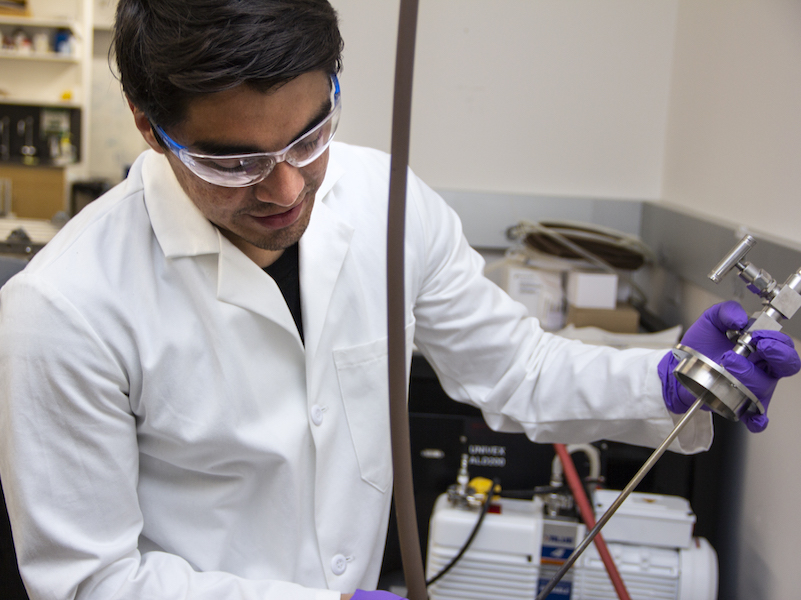
Advanced entry Ph.D.
The advanced entry Ph.D. is for students with an M.S. in an engineering discipline or equivalent field.
Direct Ph.D.
The direct Ph.D. is for students entering the program with a B.S. in an engineering discipline or equivalent field.
For a comprehensive overview of the programs, including degree requirements, please consult the most recent handbook
Ph.D. candidate Remesh Shrestha, co-advised by Professors Sheng Shen and Maarten de Boer, explains his research to create polymer nanowires that have high thermal conductivity:
Other Ph.D. programs and partnerships
Apply here (by these deadlines).
For spring 2023
For fall 2022
The application for fall entry opens in October.
More information
Ph.D. employment stats
Ph.D. enrollment and completion stats [pdf]
- Preparing to Apply
- How to Apply
- After Applying
- Why Penn State?
- Military and Veteran Students
- Frequently Asked Questions
Degree Programs
- Academic Dates and Deadlines
- Policies for Students
- Theses and Dissertations
- Integrated Undergraduate-Graduate Plans
- Commencement
- Planning Your Finances
- External Funding Opportunities
- Information for Graduate Assistants
- Student Recognition Awards
- Funding FAQ
- Professional Development
- New Students
- From the Dean
- Advising and Mentoring Tips
- Academic Support
- Student Support FAQs
- Addressing Concerns
- Well-Being Resources
- Office of Graduate Educational Equity Programs (OGEEP)
- Graduate School Open House
- Programs and Initiatives
- McNair Scholars Program
- Summer Research Opportunities Program (SROP)
- Resources and Partners
- Office of the Vice Provost for Graduate Education and Dean
- Vision, Mission, and Strategic Plan
- By the Numbers
- Contact the Graduate School
- Resource Library
This dialog contains the full navigation menu for gradschool.psu.edu.
The Graduate School
- Student Support
Information For
- Alumni and Friends
- Veterans and Military Service Members
- Corporate Connections & Partnerships
Helpful Links
- Graduate Education Policies
- Student Teaching Certificate
- Graduate Exhibition
- Three Minute Thesis
- Accelerate to Industry
For Faculty and Staff
- Graduate Council
- Graduate Education Resource Portal

Social Media

Penn State offers more than 300 graduate degree programs across 200 fields of study, in addition to graduate certificates. You can learn about all graduate programs, and get contact information, through the University's Graduate Bulletin.
Legal Statements
- Non-Discrimination
- Equal Opportunity
- Accessibility
- The Pennsylvania State University © 2024

Virtual Tour
Experience University of Idaho with a virtual tour. Explore now
- Discover a Career
- Find a Major
- Experience U of I Life
More Resources
- Admitted Students
- International Students
Take Action
- Find Financial Aid
- View Deadlines
- Find Your Rep

Helping to ensure U of I is a safe and engaging place for students to learn and be successful. Read about Title IX.
Get Involved
- Clubs & Volunteer Opportunities
- Recreation and Wellbeing
- Student Government
- Student Sustainability Cooperative
- Academic Assistance
- Safety & Security
- Career Services
- Health & Wellness Services
- Register for Classes
- Dates & Deadlines
- Financial Aid
- Sustainable Solutions
- U of I Library

- Upcoming Events
Review the events calendar.
Stay Connected
- Vandal Family Newsletter
- Here We Have Idaho Magazine
- Living on Campus
- Campus Safety
- About Moscow

The largest Vandal Family reunion of the year. Check dates.
Benefits and Services
- Vandal Voyagers Program
- Vandal License Plate
- Submit Class Notes
- Make a Gift
- View Events
- Alumni Chapters
- University Magazine
- Alumni Newsletter

SlateConnect
U of I's web-based retention and advising tool provides an efficient way to guide and support students on their road to graduation. Login to SlateConnect.
Common Tools
- Administrative Procedures Manual (APM)
- Class Schedule
- OIT Tech Support
- Academic Dates & Deadlines
- U of I Retirees Association
- Faculty Senate
- Staff Council
College of Graduate Studies
Physical Address: Morrill Hall Room 104
Mailing Address: College of Graduate Studies University of Idaho 875 Perimeter Drive MS 3017 Moscow, ID 83844-3017
Phone: 208-885-2647
Email: [email protected]
Online Master’s and Doctoral Programs List
The University of Idaho’s online graduate degrees reflect our mission of making education accessible across the state and nation and responding to changing employment demands. Delivering the quality instruction expected of a research university, our online master’s and doctoral programs are taught by our esteemed faculty members and build upon our century-old reputation as an educational leader in the Northwest.
Online graduate students can earn a degree from one of our top-ranked national programs around their existing obligations and have access to the same opportunities and resources, including the on-campus library, research projects, scholarships, and teaching assistantships. If you’ve thought about returning to school but require more flexibility due to your full-time job and raising a family, advance your career with any of the programs listed here.
Available via online or distance learning:
- Climate Change , P.S.M.
- Geographic Information Skills, Mapping, and Monitoring , P.S.M.
- Precision Nutrition for Human and Animal Health , P.S.M.
- Scientific Communication and Leadership , Certificate
- Sustainable Soil and Land Systems , P.S.M.
- Water Resources , P.S.M.
College of Business and Economics
- Online Master of Business Administration , M.B.A.
- Adult Organizational Learning and Leadership , M.S.
- Educational Leadership , M.Ed.
- Curriculum and Instruction , M.Ed.
- Physical Education , M.Ed.
- Special Education , M.Ed.
- Education , Ed.D., Ph.D. (may vary from all to mostly online)
Engineering
- Advanced Semiconductor Design
- Civil Engineering , M.Engr.
- Computer Engineering , M.S., M.Engr.
- Computer Science , M.S.
- Cybersecurity , M.S.
- Electrical Engineering , M.S., M.Engr.
- Engineering Management , M.Engr.
- Geological Engineering, , M.S.
- High-Speed Circuits and Systems , Certificate
- Mechanical Engineering , M.Engr.
- Power System Protection and Relaying, Certificate
- Secure and Dependable Computing Systems, Certificate
- Smart Grid Cybersecurity
- Technology Management , M.S.
Letters, Arts and Social Sciences
- Criminology , M.S.
- Emerging Media , M.A.
- Music , M.Mus.
- Media Production , Certificate
- Public Administration , M.P.A.
- Psychology: Human Factors , M.S.
- Theatre Arts , MFA
- Strategic Media Management , Certificate
Natural Resources and Environmental Science
- Environmental Science, M.S.
- Environmental Education and Science Communication, Certificate
- Master of Natural Resources, M.N.R.
- Fire Ecology, Management and Technology , Certificate
- Remote Sensing of the Environment, Certificate
- Geographic Information Science: Geospatial Aspects of Sustainable Planning Application , M.S.
- Geographic Information Science: Geospatial Habitat Assessment Application , M.S.
- Geographic Information Science: Geospatial Intelligence Application , M.S.
- Geographic Information Science: Geotechnician Application , M.S.
- Geographic Information Science: GIS Programming Application , M.S.
- Geographic Information Science: Natural Hazards and Emergency Planning Application , M.S.
- Statistical Science , M.S.
- Teaching Mathematics , M.A.T.
The University of Idaho General Catalog is available online.
Distance Learning Versus Online Graduate Degrees
U of I’s online graduate degrees utilize two distinct formats. Online learning uses pre-recorded, or asynchronous, lectures that students can then review on their own time. Distance learning simulates a real-time virtual classroom. Wherever an online student is located, they have direct access to a traditional classroom environment where they can interact and participate in discussions with their fellow students and instructors.
The Benefits of U of I’s Online Graduate Programs
Whichever online degree you begin, being an online learning student at U of I comes with a host of benefits.
- Flexibility: We design our online master’s and doctoral programs around the schedules of working adults, allowing you to maintain existing employment, family, and seasonal commitments without altering your schedule or taking a hit in income.
- Quality: We’re one of the region’s most respected research universities. Whether the class is pre-recorded or virtual, our leading faculty members deliver the same depth and detail of instruction that you expect in an on-campus classroom.
- Place-Based Degrees: Especially where research is concerned, our faculty members partner with regional organizations to support our online graduate students as they complete a place-based thesis or non-thesis research project. You, in turn, can conduct guided research relevant to your geographic region without ever setting foot on campus and may even be able to do so through your existing employer.
- Scholarships: Many erroneously believe that scholarships are off the table to online graduate students. Supporting your endeavors and professional growth, the University of Idaho has opened up teaching assistant opportunities and place-based scholarships to online students.
- Affordability: No matter where you are in the country or world, all online courses for master’s and doctoral programs are charged at our in-state rate.
- Ahead of the Curve: The University of Idaho championed distance learning ahead of everyone else with our innovative Engineering Outreach program. We introduced these degrees over 35 years ago, and while we’ve adjusted delivery methods to available technologies, our commitment toward advancing your career through quality education has not wavered.
Learn More About U of I’s Online Graduate Degrees
Thinking about enrolling in an online graduate degree program? To get your questions answered, reach out to the College of Graduate Studies by email or by phone at 208-885-2647, or request additional information today .
- Interesting for you
- My settings

Study PhD's in Moscow, Moscow, Russia
Moscow at a glance.
Have an unforgettable study abroad adventure in the city of Moscow, Russia’s capital, the largest city on the European continent. Discover a culture full of contrasts; experience the wild nightlife and the outstanding structures such as the Kremlin, colourful Orthodox churches, or the famous subway system. Study a degree abroad in Moscow, to get high standards education in engineering and other disciplines.
- 10.4M Population
- 41640 - 81440 RUB /month Living Costs
- 1 Universities
Studying in Moscow
The higher education offer in Moscow means access to a wide range of science programmes and applied science programmes with plenty of lab work and academic research, and expertise from thousands of experienced teachers and faculty members.
Enrol in Bachelor and Master programmes with specialisations in disciplines of international popularity such as electrical engineering, mechanical engineering, nanotechnology, medical science, economics, law, international relations, business administration, public administration offering up to date solutions to current global issues.
Select the right Bachelor or Master of Science; or a competitive International MBA or choose from other undergraduate or graduate studies such as diplomas, certificates, university short courses, and more.
Join top PhDs conducting leading research with scientific institutes in Russia and around the world.
Students’ grades are based almost exclusively on the ‘final exam,’ with less attention attached to perceived effort, attendance and homework. Degree studies in Moscow relies heavily on self-learning. But you will have plenty of learning resources, as there are huge libraries in universities and throughout the city.
Career opportunities in Moscow
Moscow is a top destination for international business, as one of the largest municipal economies of Europe, and the lowest unemployment rate in Russia. The city is also Russia’s financial centre with large banks as well as successful industries such as: chemical, metallurgy, food, textile, furniture, energy production, software development, jewellery and machinery industries.
Top companies in Moscow include: Gazprom, 1C Company, ABBYY, Kaspersky Lab, Ruselectronics, Kristall, ZiL.
The Moscow International Business Center is a projected new part of central Moscow, situated in Presnensky District, aiming to create a zone combining business activity, living space and entertainment.
Universities have partnerships with successful companies in Moscow, providing lab work and internship opportunities for interested international students.
Moscow city life
Moscow provides offers attractive student life at any cost and time of the day or night. The city is full of clubs, restaurants and bars. Tverskaya Street is also one of the busiest shopping streets in Moscow. Today the city has many of the world's largest nightclubs, bars, creative spaces and restaurants turned into dancefloors.
The city is renowned for their selection of museums, theatres, public libraries, and concert halls. Wonderful art museums are spread throughout the city such as the Tretayakov Gallery, which houses the world's best collection of Russian icons and pre-revolutionary Russian art. Also not to be missed are some of the city's literary museums, particularly including works from top Russian writers like Tolstoy, Pushkin, Dostoevsky, or Gogol.
Other places that you simply must visit in your lifetime include:
- Kremlin Museum Complex
- Lenin Mausoleum
- St Basil Cathedral
- The Pushkin Museum
- Bolshoi Theatre
- State Historical Museum of Russia
- Memorial Museum of Astronautics
Make sure you also visit a Russian bathhouse (banya) while in Moscow – an important Russian tradition.
Transportation in the city, though often congested, is very efficient. The metro system is one of the largest and most effective in the world, featuring great art, murals, mosaics, and ornate chandeliers. There are a lot of airports and train stations that will make traveling to other cities very simple.
International atmosphere in Moscow
Moscow features a diverse international population coming from countries that made up the past Communist Bloc such as Ukrainians, Tatars, Armenians, Azeri, Moldovans, Belarusians, including other migrants from Central Asia. Moscow is also Russia’s capital of Eastern Orthodox Christianity, but other religions are also practiced including Buddhism, Catholicism, Islam, Judaism, and more, confirming the city’s diversity.
Moscow’s beautiful sites and busy lifestyle has increased the number of international tourists, adding to the city’s international atmosphere. Many universities in Moscow, as well, have tens of thousands of international graduates every year, although you will probably need to speak Russian in order to enrol.
Weather Moscow
Moscow has long, cold winters usually lasting from November to the end of March. Temperatures can fluctuate between the city centre and the suburbs between 5-10°C (41-50°F). Heat waves may occur during summer. Average low temperatures are -10°C(15°F) in February, while average highs reach 24°C (76°F) in July.
Universities in Moscow
Uniting people of different cultures by knowledge RUDN University creates leaders to make the World better.
Go to your profile page to get personalised recommendations!
Find Info For
- Current Students
- Prospective Students
- Alumni and Friends
- Engage with Purdue
- Research and Innovation
Quick Links
- Report a Concern
- Calendar of Events, Dates, and Deadlines
- Current Graduate Students
- Alumni and Giving
- Rankings and Recognition
- All Graduate Programs at our Campuses
- Graduate Degree Programs
- Certificate Programs
- Interdisciplinary Graduate Programs (OIGP)
- University Academic Catalog
- Course Information
- Publications
- Graduate Programs Office
- Office of Graduate Assistance (OGA)
- Guidelines for Graduate Student Mentoring and Advising
- Preparing for Graduate Studies
- Graduate Program Requirements
- Why Choose Purdue?
- Tuition & Fees
- How to Apply
- Check Application Status
- Transcript Upload Tips
- Admitted Students
- Visit Campus
- Global Ambassadors
- Purdue Graduate Student Center
- International Students
- Request Information
- Fellowships
- Professional Development
- Information Management and Analysis
- Data Requests
- Database Project
Graduate Programs at our Campuses
Purdue University administers its largest and most comprehensive campus in West Lafayette, Indiana, home to the Purdue University Office of the Vice Provost for Graduate Students and Postdoctoral Scholars (OGSPS) . The OGSPS offers more than 160 graduate programs on the West Lafayette campus and nearly 80 additional programs on its regional campuses, located across the State of Indiana.
Having trouble narrowing your path to one selection? When applying to the Purdue graduate studies, you will have an opportunity to apply for two different campuses and/or majors with a single application and fee payment. You will also be able to rank your graduate program selections by 1st and 2nd choice.
For information about Purdue's program options in your area of interest, please review the appropriate campus below.
Main Campus

West Lafayette Campus
Purdue University's oldest and largest campus with approximately 40,000 students is located in West Lafayette, Indiana.
- Interdisciplinary Graduate Programs
- Online Programs
- Main Campus Graduate Program Directory (Heads, Chairs & Contacts)
- Departmental Graduate Handbooks
Regional Campuses
Purdue university fort wayne.
- Purdue Fort Wayne Graduate Programs
- Purdue Fort Wayne Graduate Program Directory (Heads, Chairs & Contacts)
Purdue Northwest
Purdue Northwest, with campus locations in Hammond and Westville, offers graduate studies in the near-Chicago northwestern region of Indiana.
- Purdue Northwest Graduate Programs
- Purdue Northwest Graduate Program Directory (Heads, Chairs & Contacts)
- How to Register for Classes
- Schedule of Classes
- Course Catalog
Communication
- OneCampus Portal
- Brightspace
- BoilerConnect
- Faculty and Staff
- Human Resources
- Colleges and Schools
- Find Workshops
- Funding Support
- Purdue Graduate Student Government
- Staff Directory
- OGSPS Toolkit
- Catalogs, Manuals, Policies
Ernest C. Young Hall, Room 170 | 155 S. Grant Street, West Lafayette, IN 47907-2114 | 765-494-2600
Contact OGSPS at [email protected] for accessibility issues with this page.

- Find a Person
- Internal Resources
Department of Meteorology and Atmospheric Science
Academic calendars and resources.
Please use the links below for easy access to information relevant to your Penn State education:
- Academic Calendars
- Academic Dates and Deadlines (Thesis and Dissertation) for Graduate Students
- Commencement Information : Specifically for Undergraduate Students or specifically for Graduate Students
- Final Exam Schedule and Information
- For Parents and Families
- Registration Timetable
- Tuition and Financial Aid
- Writing Style Guide for Students

- Prospective Students
- Current Students
- Transfer Students
- Dual Credit
- Continuing Education
- Business Partners
- Veterans & Military
Nursing FT, BSN (RN-to-BSN schedule)
Degree Type Bachelor of Science in Nursing
Total Credit Hours 120
Nursing at Collin
RN-to-BSN Advance: your Degree- your Career- your Life.
The RN-to-BSN is a post licensure program designed to prepare the students with an understanding of: nursing, health and healing, the environment, and persons as diverse individuals, families, populations, and communities.
The graduate of the Collin College RN-to-BSN Program is prepared to:
- Use clinical reasoning and knowledge based on the nursing program of study, evidence-based practice outcomes, and research studies as the basis for decision-making and comprehensive, safe patient and population care.
- Demonstrate inquiry and analysis in applying patient care technologies and information systems to support safe nursing practice and population risk reduction.
- Develop safety and quality improvement activities as part of the interdisciplinary team and as an advocate and manager of nursing care.
- Educate on changes in health status and promote population risk reduction with diverse communities in collaboration with members of the interdisciplinary health care team.
- Monitor institutional, professional, and public policy to maintain adherence to standards of practice within legal, ethical, and regulatory frameworks of the professional nurse.
- Demonstrate leadership skills related to financial, human resource, clinical, and professional issues in providing and evaluating care.
- Demonstrate leadership and advocacy that reflect the values and ethics of the nursing profession.
A Bachelor of Science in Nursing (BSN) will be awarded based upon achieving satisfactory score(s) in all courses.
FUNCTIONAL ABILITIES/CORE PERFORMANCE STANDARDS STATEMENT
After initial acceptance to this program, all students are required to meet specific functional abilities - with or without accommodations - for successful completion of the program and to function safely and effectively in the variety of the profession's settings. The specific functional requirements are found in the Functional Abilities/Core Performance Standards documents provided in the program information on the Nursing website http://www.collin.edu/nursing . Students who think they may not be able to meet the functional standards and need accommodation are encouraged to contact the college ACCESS department as soon as this program is of interest.
SCHOLARSHIPS
Various scholarships are available to students when they have been accepted into the Nursing Program. Most scholarships are awarded based on financial need. Other types of monetary support are available through the college's Financial Aid Office.
FINANCIAL RESPONSIBILITIES
Students assume financial responsibility for: tuition, fees, books, and other possible requirements to complete the degree such as uniforms, immunizations, transportation (may include clinical parking passes), clinical accessories/equipment, drug testing, health coverage, testing and tutorial software, and personal computers.
ADMISSIONS REQUIREMENTS
Admission to the Nursing RN-to-BSN Program is selective. Admission to the college does not guarantee admission to the RN-to-BSN Program. Registration into upper division nursing courses is by permission only. Information and applications may be obtained from the Nursing Office or the Nursing website: http://www.collin.edu/nursing .
- Complete an application for admission to Collin College.
- The RN-to-BSN program is for Registered Nurses. Must hold a current Texas unencumbered RN license or an enhanced nurse license compact (eNLC)-multi state license. Graduate nurses (GN's) may apply and be conditionally admitted to the program but must pass the NCLEX before starting course work.
- Submit official transcripts from all colleges/universities that have pre-program requirement course work to be considered and list the awarding of an associate degree in nursing.
- Complete an associate degree in nursing from an accredited educational institution.
- Minimum overall grade point average of 2.5 on a 4.0 scale.
- Must be within six (6) to eight (8) credit hours of completion of the Texas Core Curriculum at time of application: All general education courses and pre-program requirement course work must be completed prior to registering for upper division Nursing courses.
Students will need to complete a practicum project to finish the program. Students may need to complete clinical requirements as required by a facility. These situations should be discussed with the program director as soon as identified so a plan can be developed to gain entry to the facility.
Prior to enrollment in upper division nursing courses: Students who will be earning a baccalaureate degree from Collin College MUST satisfy ALL course work requirements of the Texas core curriculum. Collin College will ensure students transferring into the RN-to-BSN program have completely met the core objectives defined by the Texas Higher Education Coordinating Board which encompasses the 42-semester credit hour requirement. Academic advisors are available at each campus to assist students in evaluation of prior course work and selection of equivalent courses. The following semester hours must be completed prior to enrollment in upper-division nursing courses.
JavaScript is required to view this site.
Please enable JavaScript to continue browsing.
© This is the footer include.

IMAGES
VIDEO
COMMENTS
Planning out a PhD trajectory can be overwhelming. Example PhD timelines can make the task easier and inspire. The following PhD timeline example describes the process and milestones of completing a PhD within 3 years.
Wharton's sense of community offers a level of comfort when reaching out to faculty as well as fellow students to help solve problems. Doctoral students and coordinators give the insider view on what to expect from a PhD schedule.
PhD research plan is a structured schedule for completing different objectives and milestones during a given timeframe. Scholars are usually unaware of it. Let us find out how to prepare it.
What happens during a typical PhD, and when? We've summarised the main milestones of a doctoral research journey.
Milestones. Doctoral students are required to review the degree plans for their program, along with information about specific degree requirements and estimated timelines to reach various benchmarks for the different degree plan specializations.
A PhD schedule takes adjustment, but the strategies that work for doctoral studies carry throughout an academic career. Adjusting to a PhD schedule can be a challenge. Classes will take up a decent amount of your time for the first few years of a program. After completing the required courses, independent research becomes the main focus.
Timetable for the Doctoral Degree. The Doctor of Philosophy degree at the GSE requires four to five years of full-time study. Possession of a relevant master's degree may shorten this period.
UCL Home UCL Ear Institute Study Postgraduate research degrees Studying for a PhD at the UCL Ear Institute Resources for PhD students and supervisors
PhD Overview and Timeline Given here are School-wide graduate degree policies and guidance. Program-specific degree options, requirements, and model programs can be found on the "Graduate Programs" pages under each of the subject areas listed in Academics.
Application deadlines vary by program and range from November to March for full-time programs. Before you apply, check the application deadline for your program on the Explore Graduate Programs page. The application closes at 11:59 p.m. Pacific Time on your program's deadline.
The PhD program in Health Policy (Management) prepares students to effect powerful change rooted in data-driven research on the managerial, operational, and strategic issues facing a wide range of organizations. Coursework includes the study of microeconomics theory, management, research methods, and statistics.
Welcome to the Graduate Group in Education PhD Program Our Ph.D. program critically engages students in contemporary issues that impact education research, policy and practice. Emphasizing collaboration, the program is an interdisciplinary graduate group that draws its faculty from diverse fields of education, humanities, social science, physical and biological sciences, mathematics, and ...
PhD Program Schedule and Format. Students complete a master's degree in the applied sciences at KGI OR similar master's program with comparable learning objectives. Completion of the PhD portion of the program is anticipated to require an additional three years of full-time study, with the possibility for extension depending on the ...
Deciding to go to graduate school is an accomplishment on its own. However, the application process can feel quite overwhelming, and I definitely felt consumed at times by the process.
PhD Program Schedule. The PhD program's focus is to hone each student's critical thinking, problem solving, field-specific, communication and career planning skills while promoting their development as advocates for science and ethical research. To accomplish these goals, students must complete a core curriculum, undertake research ...
It's a common scenario: you have never heard about Gantt charts. Then, when writing a PhD application or planning your PhD timeline for the upcoming y
Home > Academics > Graduate Studies. A Johns Hopkins postdoc, Herbert Baxter Adams, brought the seminar method of teaching from Germany, where he earned a PhD in 1876. The idea: That students would learn more by doing than by listening to lectures and taking exams. That spirit of inquiry, of challenging the way things are done, lives on today ...
Daily Schedule During most mornings, the faculty will present information related to the requirements consistent with the Walden University dissertation, doctoral study, or project study rubric. During the remainder of the day, students spend time writing and meeting with faculty members to get personalized assistance with their writing.
Doctor of Philosophy (PhD) Academic Residencies This is a list of all scheduled Doctor of Philosophy (PhD) residencies except those scheduled for the PhD in Counselor Education and Supervision (CES) and the Blended Academic Year in Residence (BAYR).
Explore the doctoral programs offered by Lomonosov Moscow State University, the oldest and most prestigious university in Russia and the world. Learn from the leading experts and researchers in various fields and disciplines.
Doctor of Philosophy in Mechanical Engineering. Students typically complete the Ph.D. degree requirements in three to five years. Early in the program, students focus on course-work that enhances their knowledge as they prepare to conduct research.
Penn State offers more than 300 graduate degree programs across 200 fields of study, in addition to graduate certificates. You can learn about all graduate programs, and get contact information, through the University's Graduate Bulletin.
Online Master's and Doctoral Programs List The University of Idaho's online graduate degrees reflect our mission of making education accessible across the state and nation and responding to changing employment demands. Delivering the quality instruction expected of a research university, our online master's and doctoral programs are taught by our esteemed faculty members and build upon ...
Study a PhD Programme in Moscow, Russia 2024. Discover more about best universities, studying, living and career opportunities in Moscow.
Admission examination for PhD program consists of two parts: written test and interview. For the interview you need to hold motivation letter and research proposal in Russian. You are also encouraged to bring recommendation letter from a potential research supervisor if you obtained one. This document is expected to contain written consent of ...
Graduate Programs at our Campuses. Purdue University administers its largest and most comprehensive campus in West Lafayette, Indiana, home to the Purdue University Office of the Vice Provost for Graduate Students and Postdoctoral Scholars (OGSPS).The OGSPS offers more than 160 graduate programs on the West Lafayette campus and nearly 80 additional programs on its regional campuses, located ...
Schedule a Visit; Graduate Main Menu - Col 2. Current Graduate Students. Academic Calendars and Resources; Academic Integrity; Climate Science Dual-Title Ph.D. Program; Clubs and Organizations; Graduate Course Offerings; Graduate Student Handbooks; Forms for Graduate Students; Schedule your Grad Defense/Exam; Graduate Main Menu - Col 3. Online ...
Program Schedule. The 2024-2025 CWAR Institute will consist of online meetings and seminars focused on Cold War history, archives, and research methodologies; presentations from fellows; a week-long in-person trip to an archive; and an optional opportunity to participate in a Cold War history conference.
The online master's program brings UC Berkeley to students, wherever they are. The WASC-accredited program blends a multidisciplinary curriculum, experienced faculty from UC Berkeley and top data-driven companies, an accomplished network of peers, and the flexibility of online learning. Request more info Complete a Rigorous, Holistic Curriculum The multidisciplinary online data science ...
The graduate of the Collin College RN-to-BSN Program is prepared to: Use clinical reasoning and knowledge based on the nursing program of study, evidence-based practice outcomes, and research studies as the basis for decision-making and comprehensive, safe patient and population care.